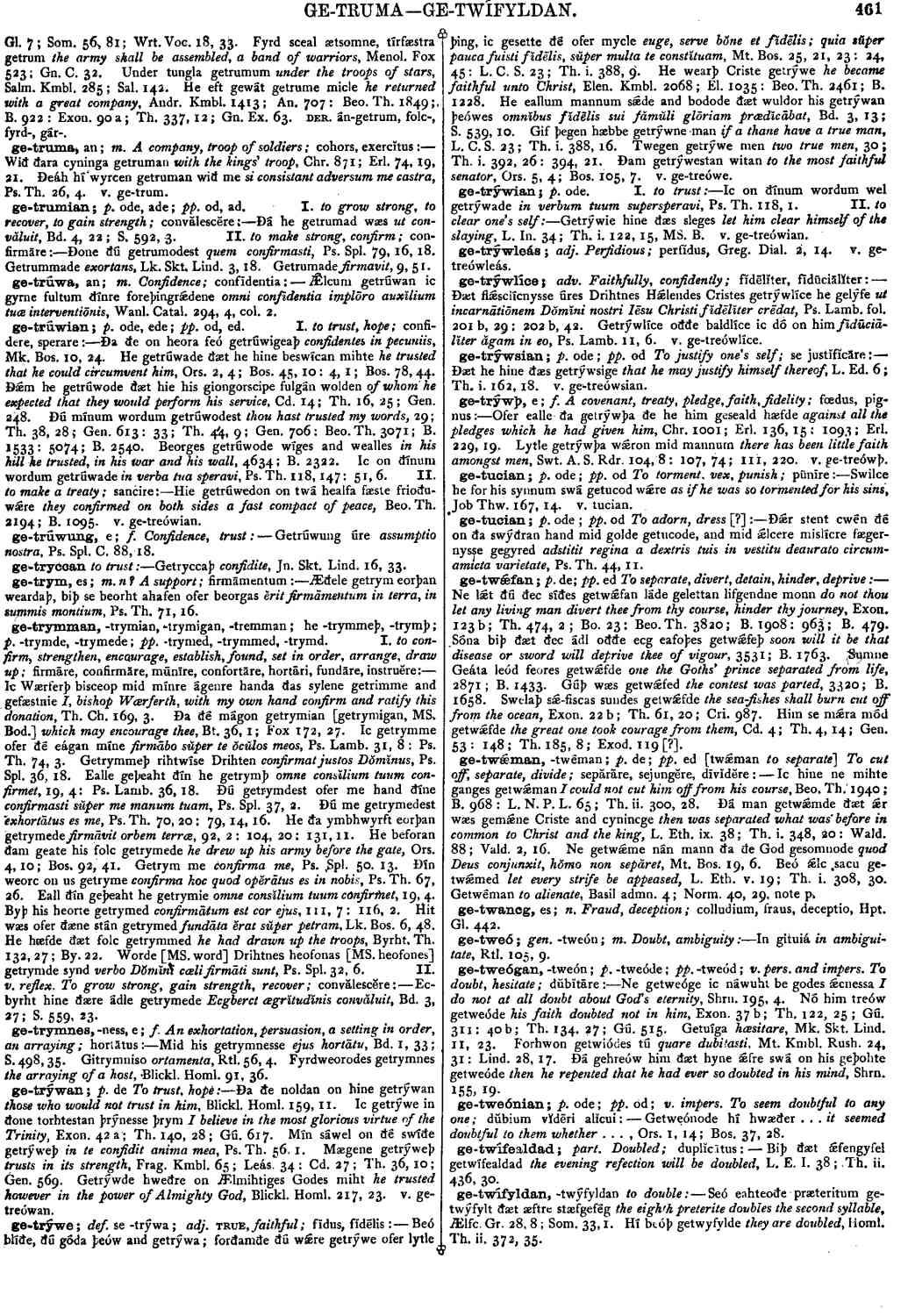ge-twǽman
- verb [ weak ]
-
Ic hine ne mihte ganges getwǽman
I could not cut him off from his course,
- Beo. Th. 1940 ;
- B. 968 :
- L. N. P. L. 65 ;
- Th. ii. 300, 28 .
-
Ðá man getwǽmde ðæt ǽr wæs gemǽne Criste and cynincge
then was separated what was before in common to Christ and the king,
- L. Eth. ix. 38 ;
- Th. i. 348, 20 :
- Wald. 88 ;
- Vald. 2, 16 .
-
Ne getwǽme nán mann ða ðe God gesomnode
quod Deus conjunxit, hŏmo non sepăret,
- Mt. Bos. 19, 6 .
-
Beó ǽlc sacu getwǽmed
let every strife be appeased,
- L. Eth. v. 19 ;
- Th. i. 308, 30 .
-
Getwéman
to alienate,
- Basil admn. 4 ;
- Norm. 40, 29, note p .
Bosworth, Joseph. “ge-twǽman.” In An Anglo-Saxon Dictionary Online, edited by Thomas Northcote Toller, Christ Sean, and Ondřej Tichy. Prague: Faculty of Arts, Charles University, 2014. https://bosworthtoller.com/16652.
Checked: 1